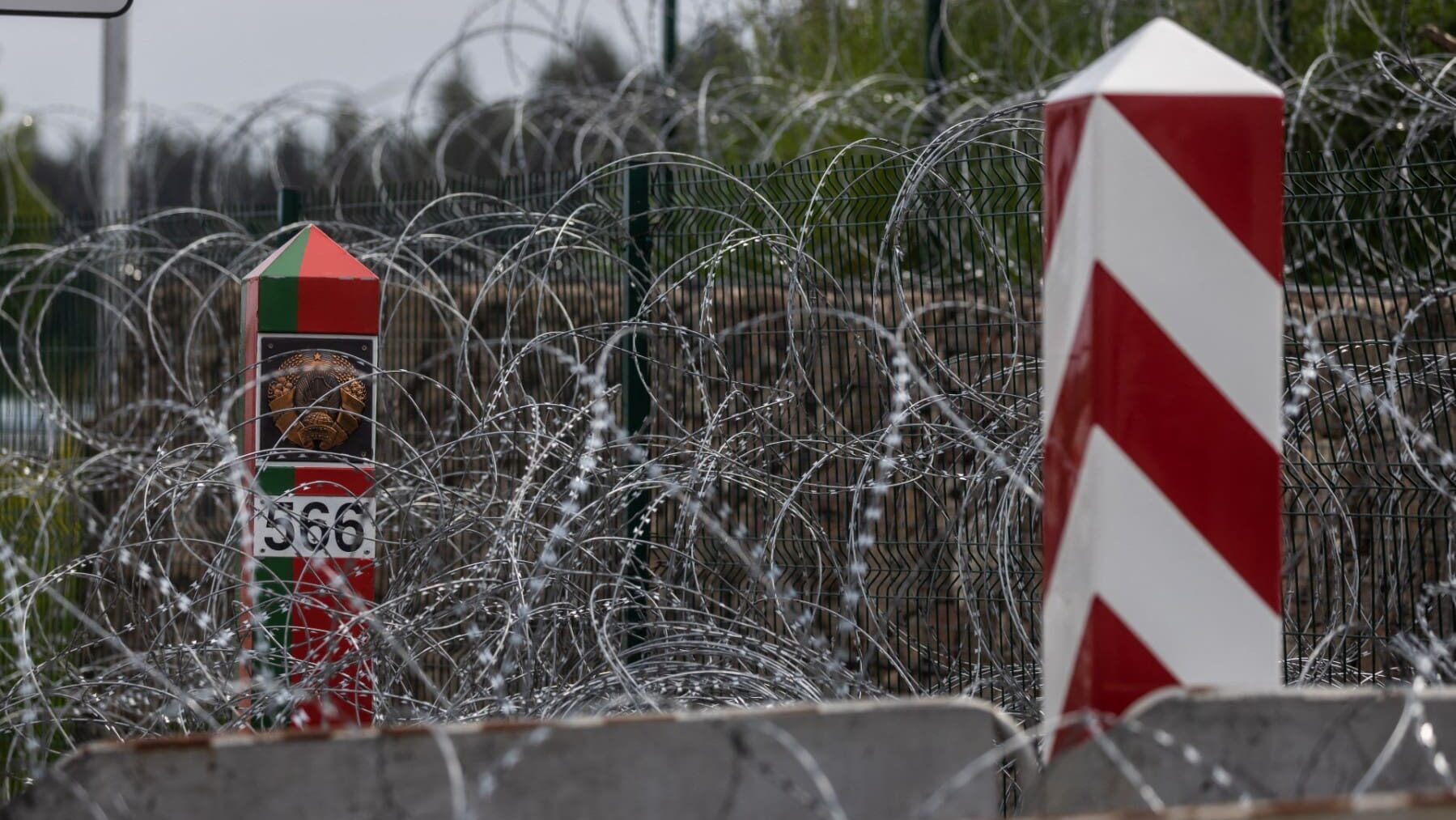
Barbed-wire fence at the Polish-Belarus border.
Photo: Wojtek Radwanski / AFP
Minsk will not do anything to protect the EU’s external borders from the ever-increasing waves of Middle Eastern illegal migrants trying to get inside the bloc from the territory of Belarus, the country’s president Alexander Lukashenko said earlier this week. The president even accused the West of trying to “exploit” the migration crisis against Belarus, even though his government has been directly behind the phenomenon for years, employing a tactic of ‘hybrid warfare’ meant to destabilize Europe.
Lukashenko’s remarks were made during a speech on Tuesday night in anticipation of Belarus’ Independence Day (July 3rd)—an ironic holiday, given that Lukashenko, who’s been in power for 30 years, is Europe’s last true dictator, and that Belarus itself is little more than just an extension of Russia.
Not long after Brussels imposed sanctions on the country for grave human rights abuses—including diverting a passenger plane to abduct and imprison an opposition journalist in 2021—Lukashenko retaliated by vowing to “flood the EU with migrants and drugs.”
Soon enough, Belarus set up several specialized ‘travel agencies’ in Baghdad and nearby cities offering easy entry into the EU for mainly Afghan and Iraqi migrants. A $10,000 ticket would cover the flight from Baghdad to Minsk, three or four days of accommodation at a hotel airport, and then a bus ride directly to the borders of Lithuania, Latvia, or Poland, where migrants are left to cross on foot. $15,000, if one chooses to fly from Erbil, Iraqi Kurdistan.
The scheme is essentially the same three years later, the only difference being that the neighboring EU countries were forced to respond to this ‘hybrid warfare’ by erecting fences along their borders and patrolling them day and night. This resulted in a serious humanitarian crisis where migrants who had sold everything they had for an empty promise became trapped in the woods without food and shelter.
Although the physical barriers have managed to somewhat reduce the number of illegal entries from Belarus in the past two years, the attempts have been steadily growing in the past months and will likely continue to do so, at least judging by Lukashenko’s threatening speech that tried to spin the story as if the West had only itself to blame.
“Where do these people run from? From the countries that the Americans and their allies have destroyed,” the president said, adding that most migrants are traveling to Germany, where Angela Merkel’s government once invited them. “If you invited them, then accommodate them.”
Россия руками Лукашенко ведёт гибридную войну против Польши. Идёт эскалация миграционного кризиса
— Oles Filonenko 🤷🏼♂️ (@FilonenkoOles) May 13, 2024
Более 140 нелегальных мигрантов из стран Африки, Азии и Ближнего Востока пытались прорваться из Беларуси в Польшу. Это произошло вечером 10 мая.
Белорусские пограничники им не… pic.twitter.com/AEzAFBenOF
Lukashenko went on to claim that the migratory route through Belarus had always been active, but that Minsk had selflessly protected the EU. Then, cooperation ended when the sanctions were introduced. “I said it plainly: we are not going to catch them.”
The president added that the entire scope of the Polish fence is to “choke” Belarus and force it to care for the migrants alone, but he would not give in to the pressure—which means he would keep sending them.
The notion that the scheme is coordinated by Moscow is evidenced by the fact that Finland and Estonia, two countries that border Russia but not Belarus, have been experiencing the same phenomenon and have been forced to react just like their southern neighbors, with fences and patrols.
Meanwhile, border guards in Poland and in the Baltics describe a gradually worsening situation across several key crossing points, where the desperate and increasingly aggressive migrants often clash with them using sticks, stones, and a whole range of makeshift weapons. Two months ago, a young Polish soldier was killed by a migrant who stabbed him in the chest with a knife, while others were wounded with broken bottles and even makeshift spears made from knives and sticks.
This intensifying “hybrid warfare” is one of the reasons Poland is investing €2.4 billion into a massive defense infrastructure that’s planned to run along the country’s eastern border, complete with bunkers and landmines to also repel possible invasions from Russia.
Last week, the three Baltic countries (Estonia, Latvia, Lithuania) joined Poland in a request submitted to the European Commission and Council to allocate several billion from the joint EU budget as well for similar fortifications along the entire EU’s eastern borders, citing the threat of both a military invasion and the hybrid warfare of Belarus and Russia.
